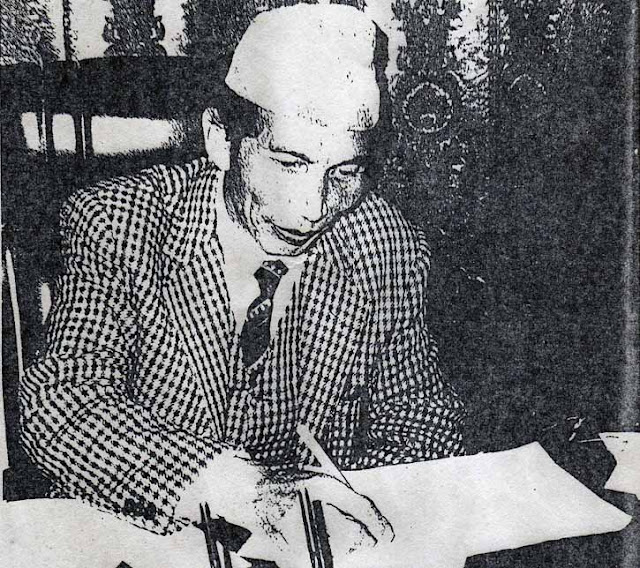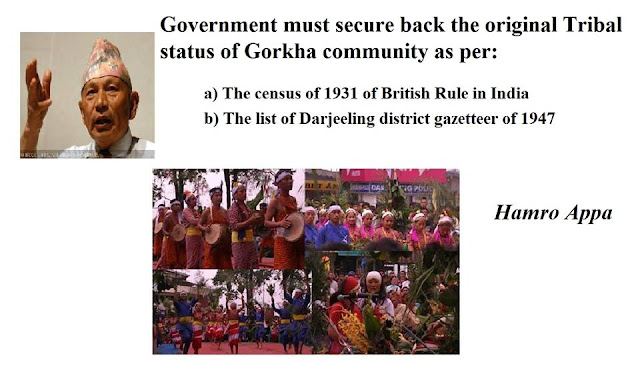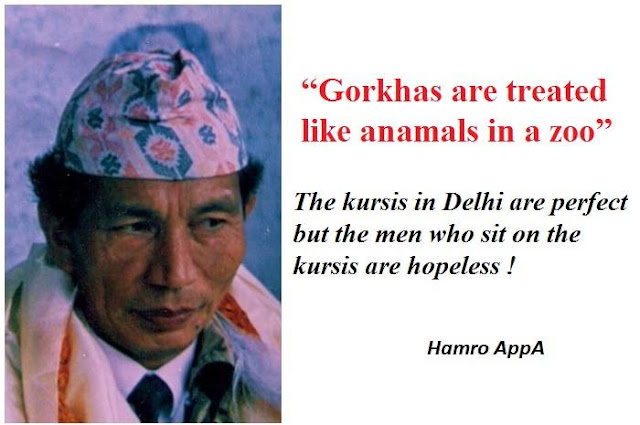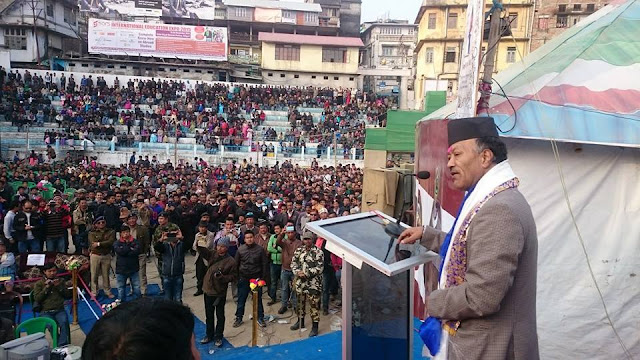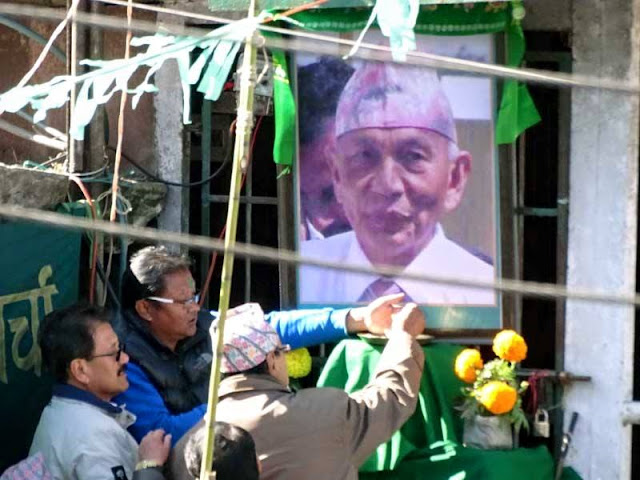At a public meeting of the Gorkha Yuva Morcha, the Gorkha Janmukti Morcha’s youth wing, in his constituency of Vah-Tukvar, Gurung said: “I had told the youths I should not speak here because if I am to speak or chair (the meeting), your voices would be held back.”
He said: “The youths should speak their hearts out, the youths should talk about dignity, about the land, the land wanting blood. The youth brigade should talk about an agitation like the ’86 agitation, They should talk about lifting guns and wielding khukuris. This is what I had told them.”
Observers said Gurung wanted to draw the Centre’s attention with his speech. At one point in his 45-minutes speech, Gurung said: “I have told the Centre that we have extended all support and it is your duty to show us by doing karma (good deeds).” The Morcha chief’s anger at the state government’s supposed interference in hill affairs was clear.
 |
| Bimal Gurung in his constituency Tukvar |
In the rest of his speech, Gurung repeatedly mentioned the state government’s alleged “discriminatory” attitude towards the hills.
“Everyone is bullying us, looking down upon us,” Gurung said. “We should live a life of dignity and not that of a coward. One should even be ready to give one’s life,” he said.
The 1986 statehood agitation Gurung was referring to had gone on for around 28 months. It was led by Subash Ghisingh, then Gurung’s leader, but later his rival.
Around 1,200 people had lost their lives during the statehood movement.
“The Bengal government is dividing our community. The black policy of the Bengal government towards the hills is creating such a situation that there could even be a division between husband and wife if they come from different communities. One should not give up one’s dignity for a toilet, a one-room house,” Gurung said, criticising chief minister Mamata Banerjee’s plan to make hill bodies for various hill communities.
The state government has announced development boards for 10 communities and among the major initiatives taken up by the boards, one is to construct toilets and houses for people of the respective communities.
Gurung said: “This (meeting) could be a turning point.”
The Morcha chief said he was increasingly feeling that the GTA cannot function. “There has just been too much interference in the working of the GTA. What is the use of a body that cannot even recruit a peon in the hills. Perhaps you will one day find me in a jungle. You must love me even then because I will be there for the cause of Gorkhaland,” he said.
The hill leader reminded the youths that nothing came without struggle. “One does not achieve anything without a struggle and struggle is not about playing madal and chabrung (musical instruments),” he said.
[Via: Telegraph]

